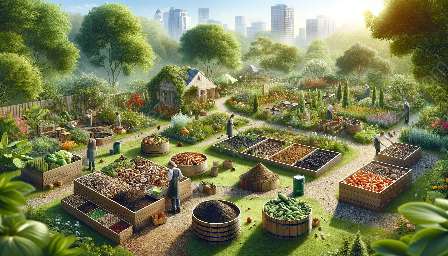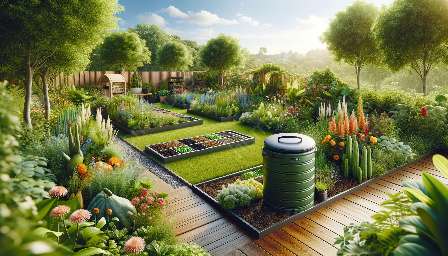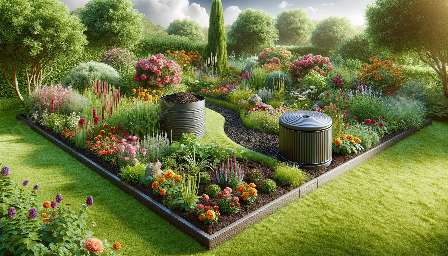Composting is a valuable practice for both gardening and landscaping, offering numerous benefits that contribute to soil health, waste reduction, and environmental sustainability.
Enriching Soil Quality
One of the primary benefits of composting is its ability to enrich soil quality. Compost contains essential nutrients such as nitrogen, potassium, and phosphorus, which are vital for the healthy growth of plants. The organic matter in compost also improves soil structure, enhancing its ability to retain moisture and nutrients, thus promoting healthier root systems and better overall plant growth. By incorporating compost into the soil, gardeners and landscapers can create a more fertile and productive environment for their plants.
Reducing Waste
Composting plays a crucial role in waste reduction. Organic waste, such as food scraps, yard trimmings, and other biodegradable materials, can be diverted from landfills and transformed into nutrient-rich compost. By composting these materials, gardeners and landscapers not only reduce the amount of waste sent to landfills but also minimize greenhouse gas emissions associated with organic decomposition in landfills. This sustainable approach to waste management helps create a more environmentally friendly and responsible gardening and landscaping practice.
Supporting Environmental Sustainability
Composting contributes to environmental sustainability in various ways. By recycling organic materials through composting, gardeners and landscapers minimize the need for chemical fertilizers, pesticides, and herbicides, thus reducing the potential for water and soil pollution. Moreover, healthy soil resulting from composting promotes biodiversity and supports the growth of beneficial microorganisms, further enhancing the ecosystem within gardens and landscapes. Additionally, composting aids in carbon sequestration, helping to mitigate climate change by reducing the release of carbon dioxide into the atmosphere. These eco-friendly aspects of composting align with the principles of sustainable gardening and landscaping, fostering a healthier and more resilient natural environment.
Promoting Water Conservation
Compost can play a critical role in promoting water conservation in gardens and landscapes. The improved soil structure resulting from composting facilitates better water retention, reducing the need for frequent irrigation. By enhancing the water-holding capacity of the soil, composting helps plants access moisture more efficiently, particularly in drought-prone regions. This water-saving effect not only benefits individual gardeners and landscapers but also contributes to broader water conservation efforts within communities and regions.
Enhancing Plant Health and Resilience
Composting supports the overall health and resilience of plants in gardens and landscapes. The nutrients and organic matter in compost nourish plants, enabling them to develop stronger root systems, resist diseases, and withstand environmental stresses. Healthy plants resulting from compost-amended soil are better equipped to thrive, bloom, and bear fruit, ultimately enhancing the aesthetic appeal and productivity of gardens and landscapes. Furthermore, the improved soil structure and biodiversity fostered by composting create a more favorable habitat for beneficial organisms, such as earthworms and microorganisms, which further contribute to plant health and ecosystem balance.
Conclusion
Composting offers a multitude of benefits for gardening and landscaping, ranging from soil enrichment and waste reduction to environmental sustainability and water conservation. By embracing composting as a fundamental practice, gardeners and landscapers can create healthier, more productive, and eco-friendly outdoor environments, while also playing a part in promoting sustainable living and caring for the planet.















































